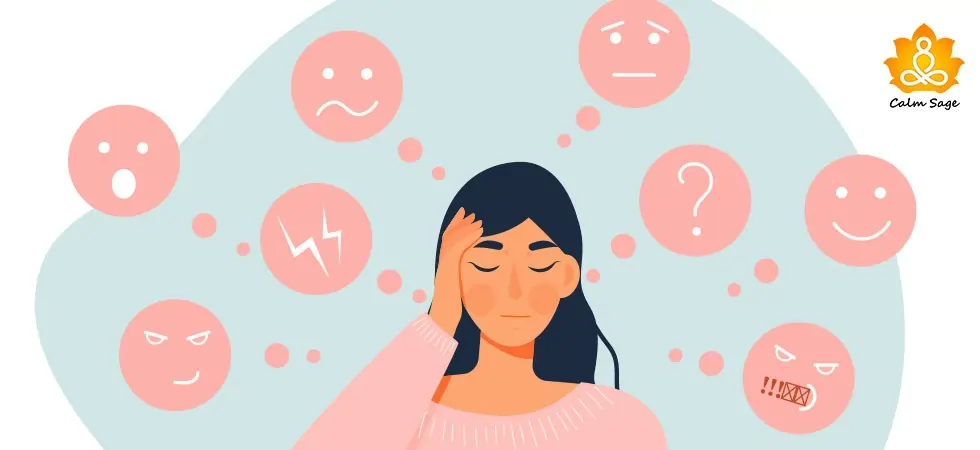Guide-Me: Stages Of Trauma & List Of Different Types Of Trauma

We all have heard about trauma, but why don’t we still don’t talk about them? Do you know that there can be different types of traumas? One distressing event or series of events can cause trauma! To be very specific…
Trauma is an emotional response caused by a distressing event or events such as accidents, rape, assault, abuse, natural disaster, violence, and more. There are so many stigmas connected to traumas that stop people from learning about the different types of trauma.
Do you know that misconceptions or stigmas related to trauma are often accepted by cultures and individuals which makes the situation even worse? The negative attitudes and beliefs can result in re-traumatization.
To break such stigmas and negative beliefs associated with trauma, in today’s blog, we are going to talk about different types of traumas that actually exist and need proper assistance and treatment by a mental health professional. So, let’s get started!
Types of Trauma
Traumas can be categorized into different groups as different studies have presented traumas differently. Generally, Trauma can be either a physical or emotional response to distressing events.
Physical trauma revolves around body injuries meanwhile, emotional can be an emotional response towards a disturbing situation or event. Emotional trauma can be of two types:
1. Acute Emotional Trauma
Acute emotional trauma is defined as an emotional response that occurs for a short duration right after experiencing a single distressing event.
2. Chronic Emotional Trauma
Chronic emotional trauma is defined as a long-term emotional response an individual experiences after experiencing repeated and prolonged series of distressing events. Chronic emotional trauma can be caused by distressing events experienced in months or years.
According to psychology, there can be different types of traumatic events:
- Accidents
- Community violence
- Child abuse
- Child neglect
- Bullying
- Domestic violence
- Intergenerational trauma
- Intimate partner violence
- Medical trauma
- Natural disasters
- Physical abuse
- Refugee trauma
- Sex trafficking
- Sexual abuse
- Terrorism
- Traumatic grief
- Verbal abuse
- War
WHO Listed Traumas
In the surveys conducted by the World Health Organization (WHO), traumas can be divided into seven categories:
1. Accidents: In this category, automobile accidents, natural disasters, man-made disasters, life-threatening illnesses, accidentally injured or killed someone, or life-threatening accidents are listed.
2. Physical violence: In this category physical assault, mugging, kidnapping, or physical violence are listed.
3. Sexual violence: In this category physical abuse by romantic partners, stalking, sexual assault, or rape are listed.
4. Traumatic grief: In this category unexpected death of a loved one, parental violence, chronic injury witnessing, dead bodies, or sudden deaths are listed.
5. Traumas related to loved ones: In this category seeing your child fighting a chronic or serious illness, traumas of loved ones, and others are listed.
6. War-related trauma: In this category intentionally killing or injuring someone, atrocities, peacekeeping, civilians in the war zone, or living in a region of terror are listed.
7. Other traumas: In this category bullying, child neglect, terrorism, verbal abuse, and other types of traumatic events are listed.
Additional Types of Traumas
Some psychologists also define traumas based on particular situations such as:
1. Collective Trauma:
Collective trauma is caused by an emotional or psychological experience affecting an entire community or large group of people after experiencing a devastating event such as genocide, war, terrorism, or natural disaster.
2. Insidious Trauma:
Insidious trauma is caused by ongoing negative experiences such as living as a member of a marginalized group.
3. Intergenerational Trauma:
Intergenerational trauma also referred to as transgenerational trauma is caused by the transmission of trauma from one generation to the other.
4. Organizational Trauma:
Organizational trauma is caused by traumatic events experienced within an organization (such trauma can be direct or indirect).
5. Secondary Trauma:
Secondary trauma is also referred to as vicarious trauma, compassion fatigue, or indirect trauma which is caused by the exposure to firsthand trauma faced by others.
Three Stages of Trauma Response
According to studies, trauma response can occur in three stages:
Stage 1: Emergency Response
Stage 1 occurs right after experiencing a traumatic event. It can be referred to as a psychological shock or acute stress response. During this stage, the body feels overwhelmed with emotions and situations which can be seen in the form of physical symptoms.
Scientifically, the adrenaline rush causes rapid heartbeat, shakiness, nausea, chest tightness, and breathing difficulties. The body activates a fight-or-flight response.
Studies show that the idea of fighting causes screaming or aggression while fighting can either cause fleeing (running away) or freezing (staying numb or disconnected, avoiding decisions, and others).
Stage 2: Short-Term Processing
After some days or weeks of the traumatic event, some sense of routine or normalcy returns. This stage is also referred to as the adjustment period wherein an individual might experience flashbacks, stress, or grief.
In such situations, people might also develop stress related to a trauma-related disorder that stops the achievement of healing or recovery.
Stage 3: Long-Term Recovery
In the last stage of trauma response, people start finding out the meaning of the trauma or start integrating the situation. In such situations, either they accept or adjust, or they start reliving the trauma again and again. Such situations often call for immediate diagnosis and treatment through a mental health professional.
Mental Health Conditions Associated with Trauma
Trauma can be associated with different mental health conditions such as:
- Anxiety disorders: Some symptoms of anxiety such as panicking or dreading might overlap with the symptoms of PTSD or trauma. According to studies, some people are diagnosed with anxiety disorders related to trauma as well.
- Borderline personality disorder (BPD): According to research, BPD might also develop due to neglect or abuse experienced in childhood.
- Depression: Some symptoms of depression such as worthlessness, lack of energy or motivation might overlap with the symptoms of depression as a common response to trauma.
- Dissociative disorders:Dissociation is a common trauma response. According to studies, around 90% of people diagnosed with dissociative disorder are associated with trauma. Types of dissociative disorders are dissociative identity disorder, depersonalization/derealization disorder, dissociative fugue, or dissociative amnesia.
- Post-traumatic stress disorder (PTSD): It’s a fact that people who experience trauma do not develop PTSD. According to studies, around 20% of people experiencing trauma meet the criteria for PTSD.
Diagnosis and Treatment of Trauma
If you think you or your loved one might be struggling with any type of trauma, connect with an experienced and certified mental health professional for the right diagnosis and treatment.
To connect with a mental health professional through online platforms, click below:

Great for a large network of licensed therapists
-
$60 to $90/week, billed every 4 weeks
-
Therapy via messaging, phone, or live video chat
-
Flexible cancellation at any time
20% off your first month

Great for CBT Based therapists
-
$40/week, billed every 4 weeks
-
Therapy via messaging, phone, or live video chat
-
Specialization for CBT based Therapy
20% off your first month

Best for Treatment Plants
-
$60 to $90/week, billed every 4 weeks
-
Therapy via messaging, phone, or live video chat
-
Flexible cancellation at any time
$100 off your first month with code SPACE
Coming forth to treatment, there are different trauma-focused psychotherapy options available that can be effective for the treatment of trauma:
1. Trauma-Focused Cognitive Behavioral Therapy (TF-CBT):
Trauma-focused cognitive behavioral therapy (TF-CBT) is a form of Cognitive behavioral therapy (CBT). The major objective of TF-CBT is to address the mental and emotional needs of adults, families, survivors, children, or adolescents to overcome the effects of early trauma.
2. Eye Movement Desensitization and Reprocessing Therapy (EMDR):
Eye Movement Desensitization and Reprocessing (EMDR) therapy is an effective technique that helps in relieving psychological stress associated with trauma. EMDR is a well-known treatment plan for traumas and PTSD. The main objective behind EMDR therapy is to relieve traumatic pain and triggers associated with trauma.
3. Brainspotting Therapy:
Brainspotting therapy is a newly invented therapy for treating traumas. It can be effectively used for people experiencing the symptoms of post-traumatic stress disorder, trauma, and negative thoughts.
I hope this blog helps you understand different types of traumas. For more such content, connect with us through all social media platforms.
Before ending this blog, I would request you to please share this blog and make people aware of psychological issues that need proper assistance and treatment.
Thanks for reading!




















